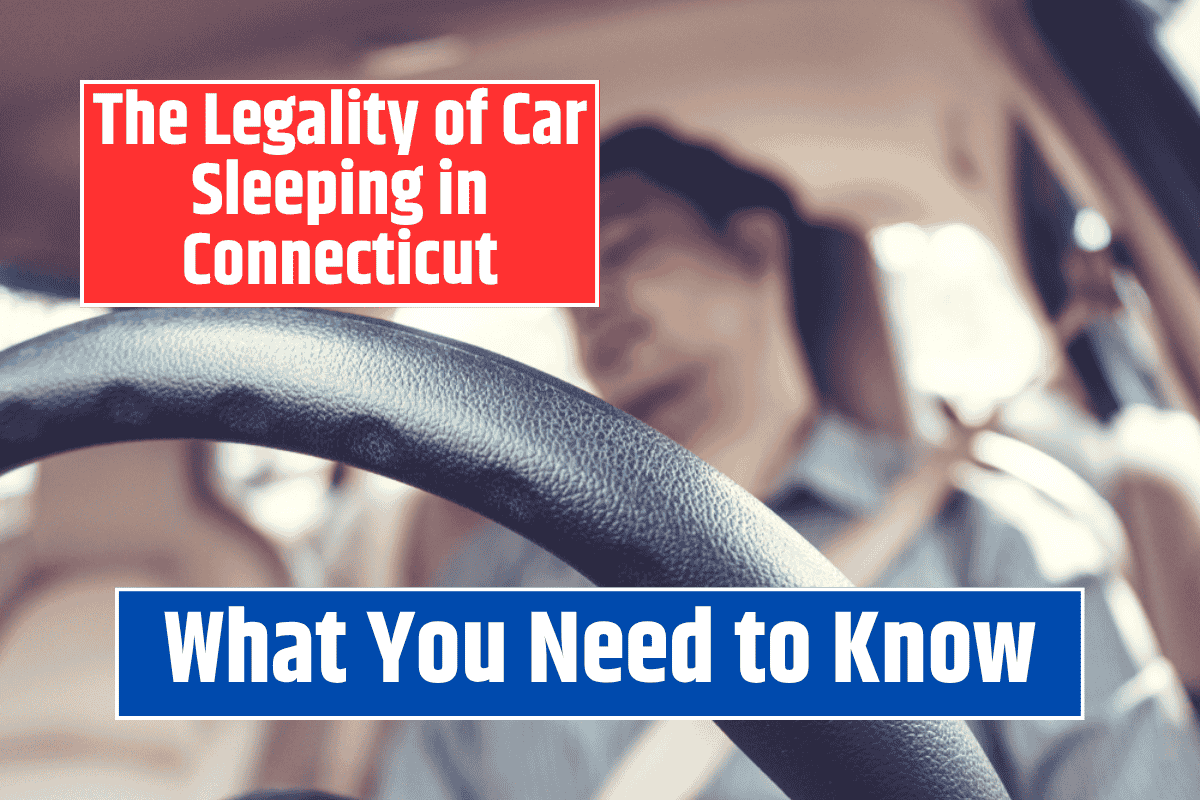Whether you’re on a road trip, feeling too tired to drive, or in need of a place to rest temporarily, sleeping in your car might be an option. If you’re in Connecticut, it’s important to understand the rules surrounding car sleeping, particularly at rest areas and other public places.
This guide explains the key laws, what is allowed at Connecticut rest areas, and how to sleep in your car safely and legally without facing fines or legal trouble.
Can You Sleep in Your Car in Connecticut?
In Connecticut, there is no law that outright bans sleeping in your car. However, where you park and how long you stay are important factors.
Let’s take a closer look at what’s allowed at Connecticut rest areas, which are the most common places for travelers to sleep in their cars.
Connecticut Rest Area Rules: What You Need to Know
How Long Can You Stay at a Connecticut Rest Area?
Connecticut rest areas do not have a set time limit for how long you can stay. The Connecticut Department of Transportation (ConnDOT) has not set a policy for how long you can park or rest at a highway rest area.
However, keep in mind that all rest areas are patrolled by Connecticut State Police, and there are signs at all rest areas saying, “No Loitering.” So, while you can stay for a while to rest, it’s best to avoid standing in front of the rest area buildings for too long, as the police may take notice.
Is Overnight Parking Allowed at Connecticut Rest Areas?
Yes, overnight parking is allowed at Connecticut rest areas. There are no signs or laws prohibiting overnight parking. These rest areas and service plazas are open 24 hours a day, 7 days a week, so you can park and sleep in your car during the night as long as you’re parked legally and not causing any issues.
The goal is to allow drivers to rest when they’re tired, so you can stay until you’re rested enough to drive safely.
Can You Sleep in Your Car at Rest Areas in Connecticut?
Yes, you can sleep in your car at Connecticut rest areas. In fact, ConnDOT encourages drowsy drivers to stop at rest areas and sleep in their vehicles. It’s considered safer than trying to drive while tired. However, the state prefers that you sleep in your vehicle rather than camping outside or sleeping on picnic tables or the grass.
Is Camping Allowed at Connecticut Rest Areas?
While there are no specific laws against camping at rest areas, the situation is a little more complicated. If you attempt to pitch a tent or set up camping gear outside your car, you’re likely to be approached by law enforcement.
However, Connecticut rest areas often have picnic tables, grills, pet areas, scenic walkways, and viewing spots. These are perfect for daytime use for short recreational breaks. But, keep your camping gear put away at night and stay inside your vehicle. As long as you follow these guidelines, you should have no problems.
Other Considerations for Sleeping in Your Car in Connecticut
Local Regulations: While rest areas allow car sleeping, local city or county regulations may differ. Always check local signs and ordinances to ensure you’re parking legally.
DUI Laws: If you’re intoxicated and sleeping in your car, do not sleep in the driver’s seat with the keys accessible. Even if your car is not moving, Connecticut law may consider you to be in “physical control” of the vehicle, which could result in a DUI charge. To avoid this, move to the back seat and keep the keys away from the ignition.
Tips for Safe and Legal Car Sleeping in Connecticut
Use rest areas for short-term stops—avoid staying too long or loitering outside the vehicle.
Park legally and avoid sleeping on city streets, public parks, or private property without permission.
If you want to sleep at a private business parking lot, always ask the store management first.
Follow local regulations—if you’re unsure, check with local authorities about any specific rules.
Don’t sleep in the driver’s seat if you’ve been drinking, and keep the keys out of reach to avoid DUI charges.
In Connecticut, sleeping in your car is generally allowed at rest areas and on private property with permission. However, public places like city streets and parks may have restrictions, so always check the local rules.
Rest areas provide a safe place for drivers to sleep, but make sure to follow guidelines—such as not camping outside your vehicle and not staying too long in one spot.
By respecting the rules and ensuring you’re parked legally, you can safely rest and get back on the road without worrying about fines or legal issues.












